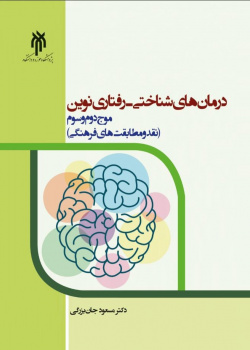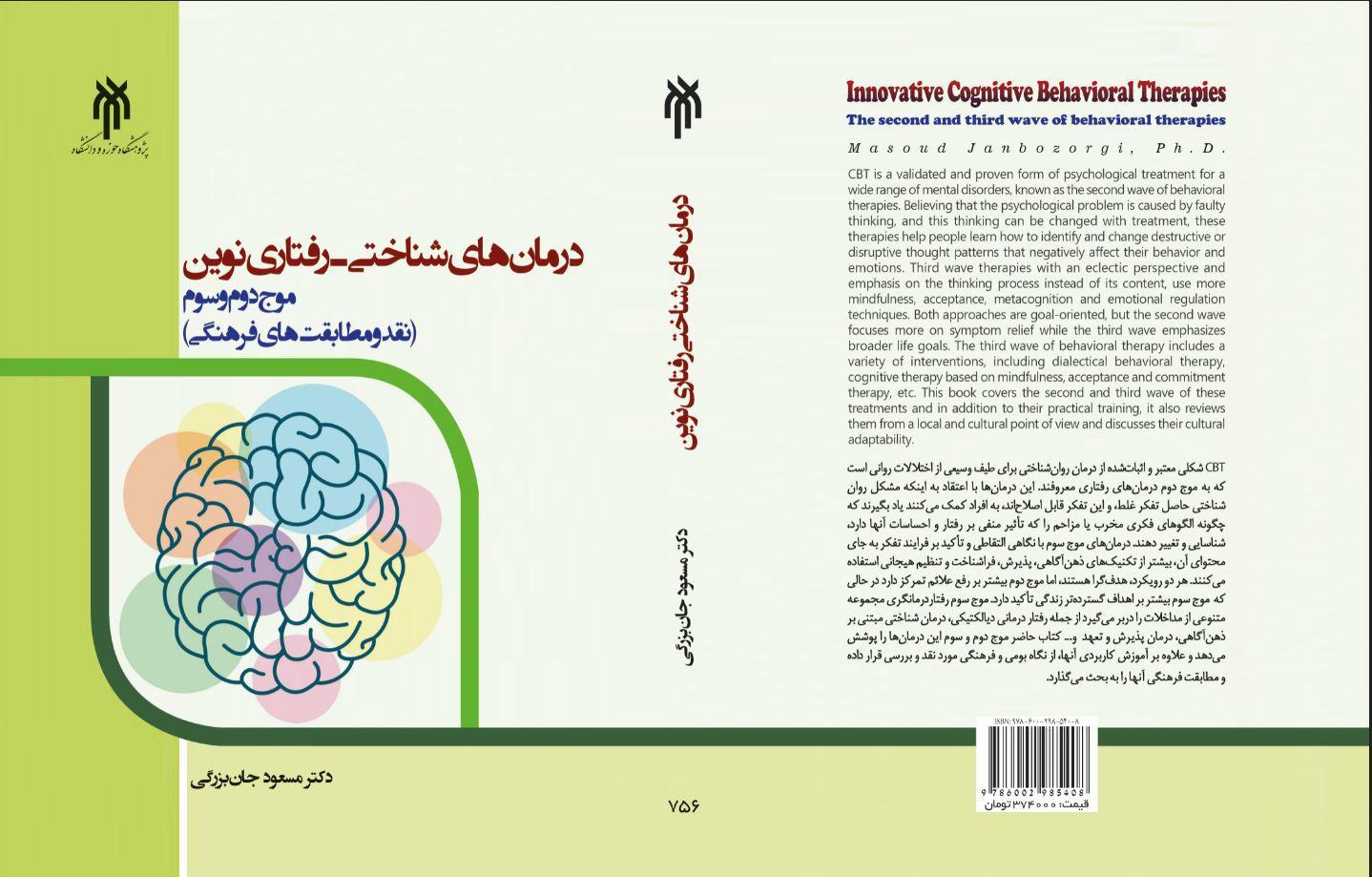



درمانهای شناختی - رفتاری نوین؛ موج دوم و سوم (نقد و مطابقتهای فرهنگی)
Innovative Cognitive Behavioral Therapies The second and third wave of behavioral therapies
CBT شکلی معتبر و اثباتشده از درمان روانشناختی برای طیف وسیعی از اختلالات روانی است که به موج دوم درمانهای رفتاری معروفند. این درمانها با اعتقاد به اینکه مشکل روانشناختی حاصل تفکر غلط، و این تفکر قابل اصلاحاند، به افراد کمک میکنند یاد بگیرند که چگونه الگوهای فکری مخرب یا مزاحم را که تأثیر منفی بر رفتار و احساسات آنها دارد، شناسایی و تغییر دهند. درمانهای موج سوم با نگاهی التقاطی و تأکید بر فرایند تفکر به جای محتوای آن، بیشتر از تکنیکهای ذهنآگاهی، پذیرش، فراشناخت و تنظیم هیجانی استفاده میکنند. هر دو رویکرد، هدفگرا هستند، اما موج دوم بیشتر بر رفع علائم تمرکز دارد در حالی که موج سوم بیشتر بر اهداف گستردهتر زندگی تأکید دارد. موج سوم رفتاردرمانگری مجموعه متنوعی از مداخلات را دربر میگیرد از جمله رفتار درمانی دیالکتیکی، درمان شناختی مبتنی بر ذهنآگاهی، درمان پذیرش و تعهد و... کتاب حاضر موج دوم و سوم این درمانها را پوشش میدهد و علاوه بر آموزش کاربردی آنها، از نگاه بومی و فرهنگی مورد نقد و بررسی قرار داده و مطابقت فرهنگی آنها را به بحث میگذارد.
Masoud Janbozorgi
CBT is a validated and proven form of psychological treatment for a wide range of mental disorders, known as the second wave of behavioral therapies. Believing that the psychological problem is caused by faulty thinking, and this thinking can be changed with treatment, these therapies help people learn how to identify and change destructive or disruptive thought patterns that negatively affect their behavior and emotions. Third wave therapies with an eclectic perspective and emphasis on the thinking process instead of its content, use more mindfulness, acceptance, metacognition and emotional regulation techniques. Both approaches are goal-oriented, but the second wave focuses more on symptom relief while the third wave emphasizes broader life goals. The third wave of behavioral therapy includes a variety of interventions, including dialectical behavioral therapy, cognitive therapy based on mindfulness, acceptance and commitment therapy, etc. This book covers the second and third wave of these treatments and in addition to their practical training, it also reviews them from a local and cultural point of view and discusses their cultural adaptability.
This research was organized in order to answer such questions,and it examined the right to self-determination individual and social in Islamic thought, and explained its fundamentals, evidences, territory and effects.
